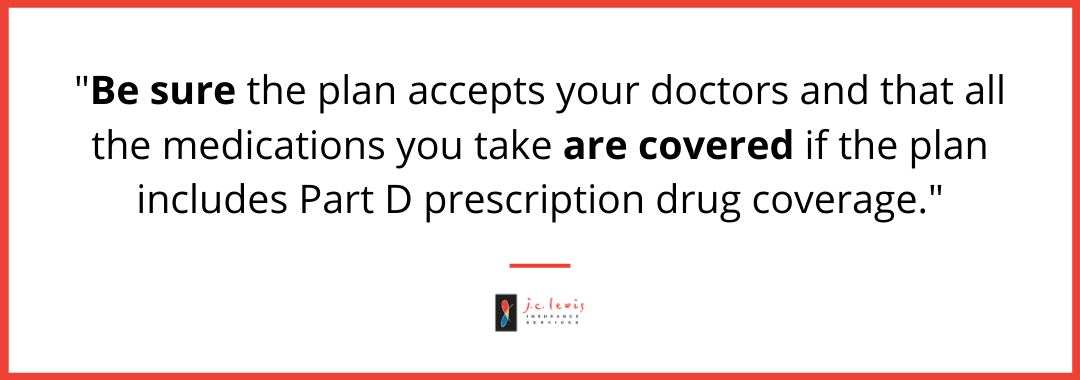For most Americans, Medicare is not something they really think about until they pass the age of 60 or so.
Then, something about hitting 65 and being eligible for Medicare often comes up.
But what is it exactly?
Basics of Medicare Coverage
In simple terms, Medicare is the federal health insurance program for people who are 65 or older, as well as some younger people with disabilities, and those with End-Stage Renal Disease, or ESRD. This is permanent kidney failure that requires dialysis or a transplant.
Medicare is structured with different parts to help cover specific services. These are:
- Medicare Part A (Hospital Insurance) – This covers inpatient hospital stays, care in a skilled nursing facility, hospice care, and some home health care.
- Medicare Part B (Medical Insurance) – Covers certain doctors’ services, outpatient care, medical supplies, and preventive services.
- Medicare Part D (prescription drug coverage) – Helps cover the cost of prescription drugs (including many recommended shots or vaccines).
In the United States, getting Medicare is seen as a major milestone. There are few important facts to be aware of when it comes to getting Medicare:
- Some people get Medicare automatically.
- You may have to sign up if you’re 65 (or almost 65) and not getting Social Security.
- There is an enrollment period for signing up or changing your Medicare Coverage.
- If you sign up for Medicare Part B when you’re first eligible, you can avoid a penalty.
- You can choose how you get your Medicare coverage.
- You may be able to get help with your Medicare costs.
Considering Part C: Medicare Advantage
Is there a Medicare Pare C? Yes, there is, and that’s where Medicare Advantage Plans come in.
Medicare explains that Advantage Plans, often referred to as “Part C” or “MA Plans,” are what they call an “all in one” alternative to Original Medicare. Medicare Advantage plans are offered by private companies that are approved by Medicare.
It’s important to note that if you join a Medicare Advantage Plan, you still have Medicare coverage. These “all in one,” or bundled plans include Medicare Part A (Hospital Insurance) and Medicare Part B (Medical Insurance), and usually Medicare drug coverage, or Part D.
According to Blue Cross/Blue Shield,
“With Original Medicare, you can go to any doctor or facility that accepts Medicare. Medicare Advantage plans have fixed networks of doctors and hospitals. Your plan will have rules about whether or not you can get care outside your network. But with any plan, you’ll pay more for care you get outside your network.”
A different perspective offered by AARP,
“Think of it as choosing between ordering the prix fixe meal (Medicare Advantage) at a restaurant, where the courses are already selected for you, or going to the buffet (original Medicare), where you must decide for yourself what you want.
If you elect to go with original Medicare, your buffet will include Part A (hospital care), Part B (doctor visits, lab tests and other outpatient services) and Part D (prescription drugs). If you decide to go with Part C, a Medicare Advantage plan, it will be more like a set menu, since a private insurer has already bundled together parts A and B and almost always D into one comprehensive plan.”
There are Certain Advantages to a Medicare Advantage Plan.
Medicare Advantage plans not only cover the same medical services as “Original Medicare” Parts A and B, but usually include an annual physical exam, as well, along with vision and dental coverage of some sort. These are not covered under Medicare Parts A and B.
In addition to these non-medical services, Medicare Advantage plans include:
- Transport to medical-service appointments
- Coverage for over the counter (OTC) drugs
- Adult daycare
- In-home care assistance for daily living
Medicare Part A provides fee-for-service (FFS) payments for people admitted for in-patient hospital care, hospice, and for skilled nursing services if a person is first admitted inpatient for three days. Some Medicare Advantage plans, however, waive the “three-day rule” of Medicare Part A.
What Else You Should Know About Medicare Advantage

There are some real downsides to Medicare Advantage plans, especially for those who are not healthy or have ongoing health issues.
An article at Investopedia notes some of the disadvantages of Medicare Advantage:
- Care can actually end up costing more, particularly if one suffers from a serious medical problem.
- Some private plans are not financially stable and may suddenly cease coverage.
- One may have difficulty getting emergency or urgent care due to rationing.
- The plans only cover certain doctors and often drop providers without cause.
- Members have to follow plan rules to get covered care.
- There are always restrictions when choosing doctors, hospitals, and other providers.
- It can be difficult to get care away from home.
- The extra benefits offered can turn out to be less than promised.
- Plans that include coverage for Part D prescription drug costs may ration certain high-cost medications.
- The Medicare Advantage Plan may offer a $0 premium, but the out-of-pocket surprises may not be worth those initial savings if you get sick.
As the article goes on to note,
“ ‘The best candidate for Medicare Advantage is someone who’s healthy,’ says Mary Ashkar, senior attorney for the Center for Medicare Advocacy. ‘We see trouble when someone gets sick.’”
Ultimately, even if you are healthy and considering a Medicare Advantage plan, the smart thing to do is to shop very carefully.

Be sure to read the “fine print” and obtain a complete, printed listing of all co-pays, deductibles, and out-of-pocket maximums before choosing a plan.
Also, be sure the plan accepts your doctors and that all the medications you take are covered if the plan includes Part D prescription drug coverage. If the plan doesn’t cover your current primary care providers, be sure that the available doctors are acceptable to you and that they are currently taking new patients covered by the plan.
Need Help With Medicare Coverage Decisions?
For help in finding the right California Medicare health or prescription drug plan and finding Medicare providers in your area, give J.C. Lewis Insurance Services a call toll-free at 866-745-9555. We’ll help you understand your options so you can make an informed decision.
J.C. Lewis Insurance, a family-owned firm of expert brokers based in Sonoma County, offers California health insurance plans only from the leading health insurance carriers licensed to do business in California.
Not only are we expert brokers, we are also licensed and certified by each of these insurance carriers to offer coverage to individuals, families, and small group employers in addition to Medicare supplemental and prescription drug plans for seniors.



